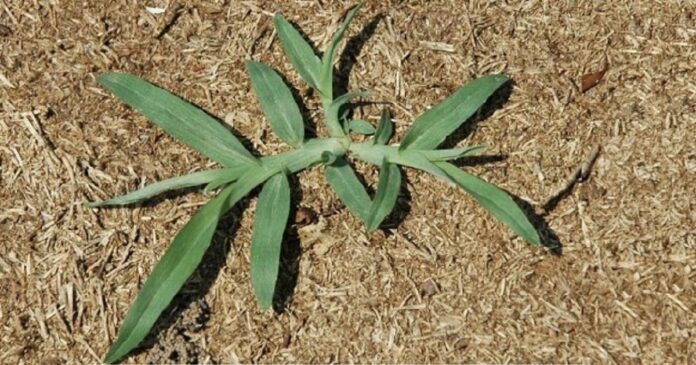Controlling weeds is still a challenge as organic farming as a farming system is gradually becoming popular with farmers. This could be as a result of increasing demand for organic food produce.
However, organic farming has its own challenges, a major one being weed control. Weed control in organic farming is not as easy as in inorganic farming where chemicals are used to control the weeds. At best, weeds are managed and not eliminated in organic farming.
It is important to understand the co-existence of weeds and crops in the management of weeds in organic farming.
Understanding Weeds and Crops
Weeds and crops grow in the same area of land. Crops are deliberately grown. In the areas crops are grown, weed seeds are waiting for favourable conditions to germinate and grow. They grow with so much vigour than the crops grown because they are the original residents of the land.
Both crops and weeds require water, plant nutrients and space to grow and so there is a constant competition for these resources.
The weeds usually being more resilient tends to have an advantage and overgrows that crops. This is the critical periods and so the weeds must be controlled to ensure that the crops grow optimally.
In fruit crops, this happens around the flowering stage.
Strategies For Controlling Weeds in Organic Farming
Cover cropping
Cover crops help to manage soil erosion, soil fertility, soil quality, water, weeds, pests, etc. In this case, we are much concerned with weeds. Like other plants, weeds also require sunlight to grow. Cover crops shield the weeds and prevent sunlight from reaching them. This helps to suppress the growth of the weeds.
Crop rotation
Crops rotation is another effective strategy for controlling weeds in organic farming. It is actually the planting of different kinds of crops in a particular sequence on the same piece of land.
How does crop rotation control weeds?
Some weeds are associated with some specific crops. When one crop is grown continuously, the weeds get established and dominate the crops unless vigorously controlled. Changing crops season after season disrupts the growth pattern and so weeds are very much controlled.
Tillage
Land preparation techniques have a huge impact on weeds management on farms. There are three major types of soil tillage with their advantages and disadvantages. For effecting weed control and other benefits to the soil, crops and environment, we recommend no-till.
The practice of no-till helps to maintain enough soil cover. This soil cover shields the weeds or weed seeds from sunlight and so suppresses their growth.
Mulching
Mulching is applying materials to the soil to protect the surface from direct sunlight, rain and wind. This has an added advantage by preventing weed growth. This strategy works in similar ways as no-till and cover cropping.
Choose the best types of mulch to give you effective results in controlling weeds in organic farms.
Crop spacing
Using the required spacing contributes to weed control. Crops are spaced to reduce competition for space, sunlight and nutrients. Additionally, a correct spacing will make sure that the crops form canopy just at the right time to prevent the growth of weeds.


